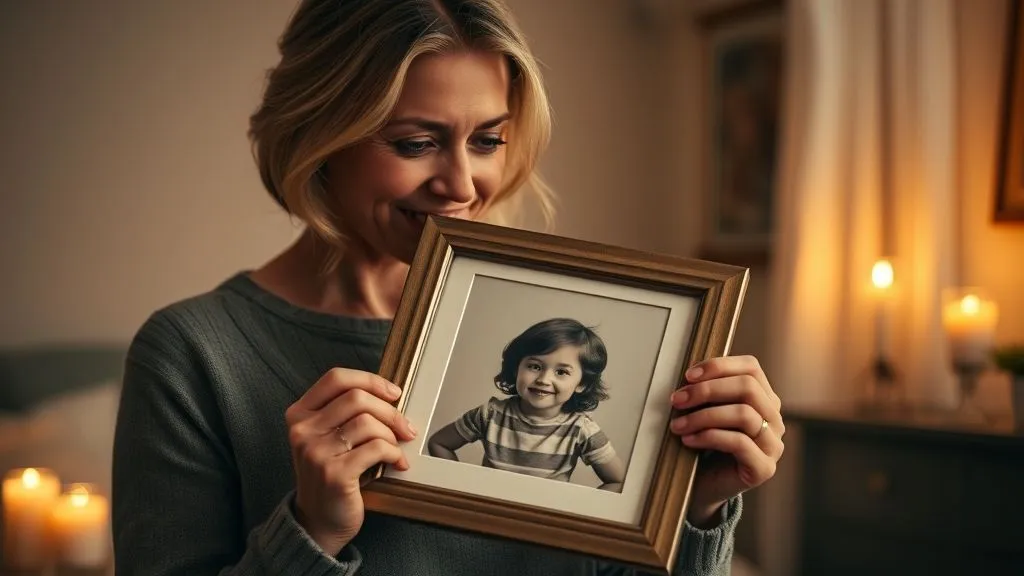
Why Do People Stay in Abusive Relationships?
It’s not weakness. It’s not foolishness. It’s not love gone wrong. People stay in abusive relationships because of invisible chains—deep psychological bonds, fears, and emotional survival mechanisms that cannot be explained with logic alone. Abuse doesn’t always show up as bruises. Sometimes, it hides behind affection, apologies, and the hope that things will go back to how they once were.
Abuse Redefined — It’s Not Just Physical
Emotional abuse often leaves no visible marks. But it rewires how someone sees themselves.
- Constant criticism begins to feel like truth.
- Gaslighting makes you doubt your memory, and your instincts, even your sanity.
- Isolation isn’t always forced—it’s subtle. Friends, stop calling. You stop reaching out.
Why this matters: Emotional abuse often feels like love mixed with poison. When someone is both your comfort and your terror, it’s disorienting.
The Trauma Bond — The Love That Hurts but Hooks
A trauma bond is not about love. It’s about emotional survival.
- Cycle of highs and lows: They hurt you, then love bomb you. You start to chase the highs.
- Fear of abandonment: You’ve been taught love means pain, so you cling harder.
- Guilt and shame: Is it or do you believe it’s your fault? That if you were better, it would stop.
This bond mimics addiction. It creates dependency, not devotion.
“But I Still Love Them…” — When Love Becomes the Cage
Love is not always a reason to stay. Sometimes, it’s the reason you stay too long.
- They weren’t always like this. You’re holding onto the version of them that felt like home.
- You believe in potential. You see who they could be, not who they consistently are.
- You want to fix it. You’d rather suffer than see the relationship die.
But ask yourself: At what point does love become self-abandonment?

“Where Will I Go?” — The Fear of Starting Over
Fear keeps people stuck. Not because they don’t want to leave, but because the unknown feels bigger than the pain they know.
- Financial dependence
- Children involved
- No support system
- Cultural stigma or family pressure
These are not excuses. These are very real, paralyzing realities for many survivors.
The Internalized Lies They Taught You
Abuse trains you to believe certain lies:
- “You’ll never find someone better.”
- “No one will believe you.”
- “This is all you’re worth.”
- “You’re too broken to leave.”
But here’s the truth: You are not hard to love. You are not imagining it. You are not weak. People who’ve been through abusive relationships are often taught to question their own voice. But that is not your fault.
Trauma Bonds, Hope Loops & Emotional Traps — The Psychology of Staying
What Is a Trauma Bond (And Why It’s So Hard to Break)?
A trauma bond isn’t just attachment. It’s survival dressed up as loyalty. In abusive relationships, when someone hurts you and then comforts you — over and over — the brain creates confusion between love and relief. That’s how pain becomes addictive.
- Fear meets reward. You cry, they soothe. You beg, they promise. Your nervous system, trained in chaos, learns to interpret inconsistency as intimacy.
- The deeper the pain, the stronger the tie. And so, even when you know better, you stay. Because walking away doesn’t just mean leaving them — it means facing your aloneness.
“You weren’t weak for staying. You were trauma-bonded.
Hope Loops: When You’re in Love With Their Potential
Hope is powerful. A loop. A never-ending emotional lottery.
- You wait for the person they once were. That one moment, that one week, that one version of them who held your face and said, “I’ll change.”
- Your brain clings to the 5% good. Even if 95% is chaos, that 5% becomes everything. It becomes the story you tell yourself.
- “I can fix them” becomes your mission. And when someone’s healing becomes your worth, you begin to disappear.
We don’t just stay in abusive relationships because we love them. We stay because we believe the love we give might finally be enough to make them change. But here’s the truth: people don’t change because you love them enough.
Toxic relationships trigger old wounds — and that’s what makes them so sticky.
- Fear of abandonment says: “If I leave, I’ll be alone forever.”
- Fear of rejection says: “If I wasn’t good enough for them, I’m not good enough for anyone.”
- Shame whispers: “Maybe I deserved it. Maybe this is what love feels like.”
These wounds aren’t just from this relationship. They’re echoes — from childhood, past relationships, family trauma. That’s why it feels bigger than it is. And that’s why you might feel paralyzed. Healing from abusive relationships means realizing: their mistreatment wasn’t confirmation of your unworthiness.

The Illusion of Control: Why You Keep Trying to “Do Better”
When you’re in a toxic dynamic, you start to believe that if you just did everything right, they’d stop hurting you.
- You micromanage your tone, your words, your body.
- You apologize for things that weren’t your fault.
- You become smaller, quieter, easier — just to avoid setting them off.
But no amount of perfection will stop someone from treating you badly if they haven’t done the work themselves. Let this be your clarity: You were not the problem. And trying harder isn’t love — it’s self-abandonment.
Why Leaving Feels Like Losing Yourself
Walking away isn’t just the end of a relationship. It’s the death of an identity.
- You’ve spent months, maybe years, molding yourself around their needs.
- Your routines, your emotional bandwidth, even your future — it all had them in it.
- When you leave, it feels like tearing your own skin.
But the version of you that stayed in abusive relationships — she was surviving. The version that leaves — she’s awakening. You’re not losing love. You’re shedding the illusion of it. And what comes next is the beginning of your return to self.
The Final Quiet Cry — Rebuilding Yourself in the Echo of Emotional Neglect
Emotional neglect
In the final part of this series, we step into the scarred places that no one ever apologized for. Healing from abusive relationships doesn’t require them to say “sorry.” What you truly need is your own heart to say, “I’m listening now.”
Hiding in Plain Sight — The Coping Habits We Mistake for Personality
We become our armor before we ever know our name. The version of you that avoids, over-apologizes, or over functions? It’s not your personality. It’s protection.
- The overachiever mask:
- You hustle for validation because love once had conditions.
- You overperform to prove your worth—because you were never made to feel enough just by being.
- Advice: Slow down. Let rest be rebellion. Your value isn’t in your output.
- The chill, unfazed one:
- You learned early that big feelings made others uncomfortable.
- You became cool-headed to survive chaos.
- Advice: Let your feelings thaw. Cry without apologizing. Rage without guilt.
- The people-pleaser:
- You needed approval to feel safe.
- You read micro-reactions like radar.
- Advice: Start disappointing others before you abandon yourself again.

Reparenting the Silent Ache — Becoming What You Needed
You can’t rewrite your childhood. But you can reparent the abandoned parts. That little you still lives inside your body, waiting to be held.
- Reassure, daily:
- Talk to your inner child like you’d talk to someone you love deeply.
- Whisper, “I see you. I’m not leaving.”
- Name your unmet needs:
- Was it safety? Tenderness? Belief?
- Name them so you can begin giving them.
- Create ritual safety:
- Morning affirmations.
- Nightly journaling.
- A photo of you as a child near your mirror. Promise them today will be different.
Learning Real Love After Growing Up in Emotional Silence
No one taught you how to receive softness. So when love shows up, it feels foreign.
- Love doesn’t always feel like fireworks:
- It might feel awkward, even boring—because chaos was your familiar.
- Kindness may trigger suspicion:
- You’ll wait for the catch. That’s not distrust of them—it’s trauma speaking.
- Healing is letting it be simple:
- A cup of tea made for you.
- A hand that stays.
- A love that doesn’t need fixing.

You Are Not Broken — You Were Just Never Heard
If no one ever held space for your feelings, you learned to hold them in. But the body keeps score. And silence rots.
- Let the grief speak:
- It might not be loud. It might be a dull, ongoing ache. Still, let it speak.
- Feel what you couldn’t before:
- Go back. Let that younger version cry, scream, question.
- There is no shame in the unraveling:
- Falling apart is not failure—it’s a necessary becoming.
Healing emotional neglect
You’re not behind. You’re not too much. You’re not unlovable. You’re just a soul who needed warmth but was handed frost. But now, you’re the warmth. You are the miracle you needed. Every quiet scream. Every unheard cry. Now has a listener: you.
Disclaimer: This post is for informational and emotional support purposes only. Every relationship is unique, and this is not professional legal, medical, or mental health advice. Read our full disclaimer.
Affiliate Disclosure: Some links in this post may be affiliate links. If you make a purchase through them, I may earn a small commission at no extra cost to you. Learn more here.
Pingback: Is It Love or Just Infatuation? Here's How to Tell - Love and Breakups
Pingback: Could My Ex Fall in Love Again? - Love and Breakups